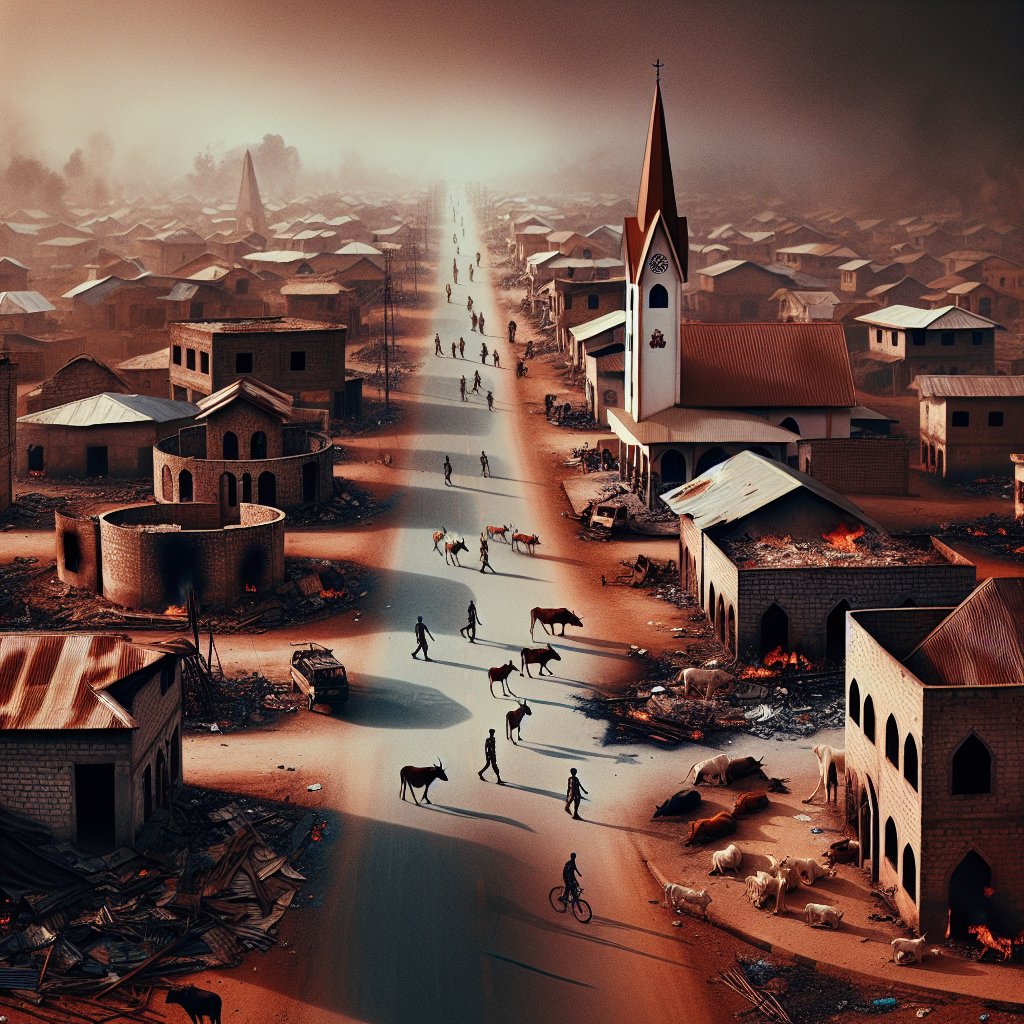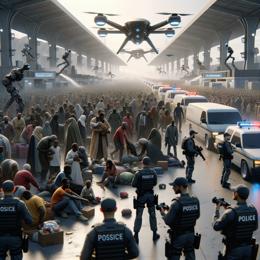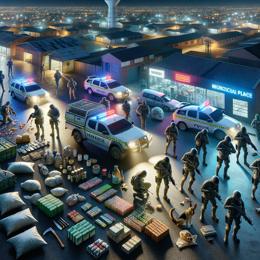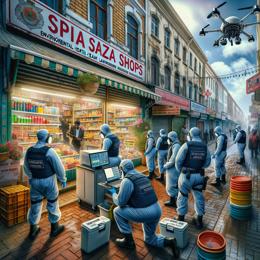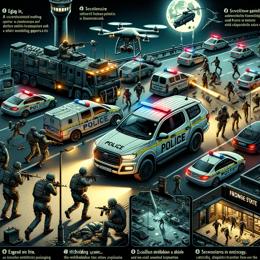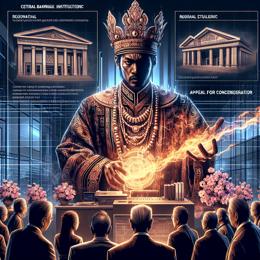Created by Bailey our AI-Agent
Tensions Escalate in Plateau State, Nigeria as Religious Structures Targeted Amidst Inter-communal Clashes
In Nigeria's central Plateau state, an outbreak of violence has ravaged the town of Mangu, resulting in a distressing pattern of destruction, with both churches and mosques burned down amidst heightened tensions. The governor has swiftly responded by imposing a 24-hour curfew in an effort to contain the situation, while the nation watches with concern.
The events in Mangu were set into motion when cattle, the property of Fulani herders, strayed onto a road, leading to a clash that left eight people dead and sparked a chain of violent confrontations between different community factions. This recent conflict in Plateau state highlights the delicate balance of inter-communal relations in a region that has long been prone to such strife.
Following the chaos, the state government directed that movement be restricted except for essential activities such as the burial ceremonies of those who perished in the turmoil, in acknowledgment of the community's need to grieve and lay their loved ones to rest.
At the heart of the issue is the pastoral conflict, a long-standing and complicated matter in Nigeria, which is often entangled with religious and ethnic identity politics. Plateau state is particularly susceptible due to its geographical position, being a junction where predominantly Muslim populations from the north meet largely Christian populations in the south.
Mangu is emblematic of the broader challenges faced by Plateau state and Nigeria as a whole. The BBC has reported that as a result of the fracas, six mosques and two churches fell victim to the flames. This destruction of sacred spaces hints at the depth of division and anger that exists and the ease with which property, and indeed life, can be endangered once violence flares up.
This increasing trend of targeting places of worship assumes a particularly painful significance as it represents an attack on the very fabric of community and the sanctity of spaces considered safe and unifying for congregants. The need for reconciliation and peace-building in the area is now more pressing than ever.
Reports emerging from the area, though unconfirmed, indicate that clashes may be persisting despite the curfew. The tension underscores the fragile nature of peace in multi-ethnic and multi-religious societies such as Nigeria, where such conflicts, though local, have the potential to escalate and impact regional stability.
Religious and community leaders, along with government officials, are being called upon to mediate and help address underlying tensions, promote dialogue, and ideally foster an enduring peace in the region. It is evident that without concerted efforts aimed at dealing with the grievances at the grassroots level and improving the socio-economic situation, the cycle of violence might continue.
The imposition of the curfew, while necessary for immediate peacekeeping, is merely a stopgap measure. The broader, more complex issues of land rights, political representation, and equitable resource distribution remain to be tackled as part of a long-term strategy to prevent such incidents from recurring.
As the situation in Mangu unfolds, the nation and the international community are reminded of the importance of religious tolerance and the need to protect the sacred right for all to practice their faith in peace, as enshrined in the constitution of Nigeria and in international human rights laws.
#GOOGLE_AD
